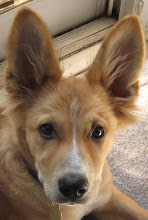Motto comes from the Latin word “muttire,” which means to mutter, mumble, murmur.
A few weeks ago, I was talking with my sister-in-law who passed along a great idea that she got from her son (my nephew) who got it from one of his professors—who probably got it from someone else, ad infinitum. So here’s my chance to pass it along to you.
The idea is to define your upcoming year with one word. Make that word your motto for the entire year.
My sister-in-law did this at the beginning of 2009. By the time December rolled around, she had an impressive list of accomplishments that were the result of living by her year’s motto.
Now I’ve never really been one to make New Year’s resolutions. But I think that a personal slogan is a brilliant way to start a new year.
So ever since I heard about it, I’ve been trying to define my word. As a writer, I feel a lot of pressure to make it the perfect word. Which is probably why I haven’t settled on anything yet. But there are a few choices in the running.
- Accomplish. I need to move my ideas out of my head and into the real world, so this seems like a good word to remind me to actually get something concrete done this year.
- Empower. This one’s probably out of the running because I don’t like the word. It’s been too politicized for my taste by every group that feels put upon by others. I want something that reminds me of my inner strength and ability to change things for the better, but this word doesn’t do it for me.
- Allow. Often when I’m reluctant to do something or just plain dragging my feet, I ask myself, “What am I waiting for? Permission?” Maybe this motto will be my permission to succeed with my online book and anything else I want to do in 2010.
- Flow. As in “go with the flow” or “let good things flow forth.”
- Participate. “Just do it” is already taken, so this seems like a good alternative. A reminder to keep taking active steps to make my life better.
- Not Helpful. I know what you’re thinking: that’s two words. “Not helpful”—which isn’t about not lending a hand—is another idea I got from someone else. If you’ve seen or read The Last Lecture, you know that it was given by Randy Pausch, a forty-something university professor who knew he was dying. The lecture is extremely inspiring and entertaining, but what really stuck with me was an interview with his wife. She said that when sadness or anger surfaced about her husband’s imminent death, she banished it with the words, “not helpful.” Her feeling was that these negative feelings reduced the time and energy she had for enjoying Randy’s presence while he was still with her.
I’ve been employing this “not helpful” attitude while we say goodbye to our beloved terrier mix—who will rate her own post at a later date—and it’s been helpful in remembering to enjoy her while she’s here.
If I spend a year banishing thoughts and actions that are not helpful to my mental or physical well-being, I may be able to actually accomplish my goals.
- Happy. I’ve spent way too much of 2009 worried, annoyed or frustrated about my lack of advertising work and inability to move forward with my book project. Perhaps a steady reminder to do what makes me happy can propel me forward.
- Balance. My balance is fine in yoga class, but outside of there I’ve been off kilter. Too much living in my head and not enough action or physical activity. A return to more even weighting in all aspects of my life may be just what I need.
- Risk. Success doesn’t come to those who play it safe. Maybe what I need to push me to new heights is a motto that reminds and encourages me to take chances.
It remains to be seen what my motto will be for 2010. If you keep reading my blog posts, perhaps you’ll see changes in my life that provide a clue as to what it is. Next December, I look forward to seeing the results of living by the word I’ve muttered, mumbled and murmured to myself all year.
Here’s to new beginnings, including a new decade. And to you and yours, I wish you a happy, healthy, [fill-in-your-own-motto] New Year.
